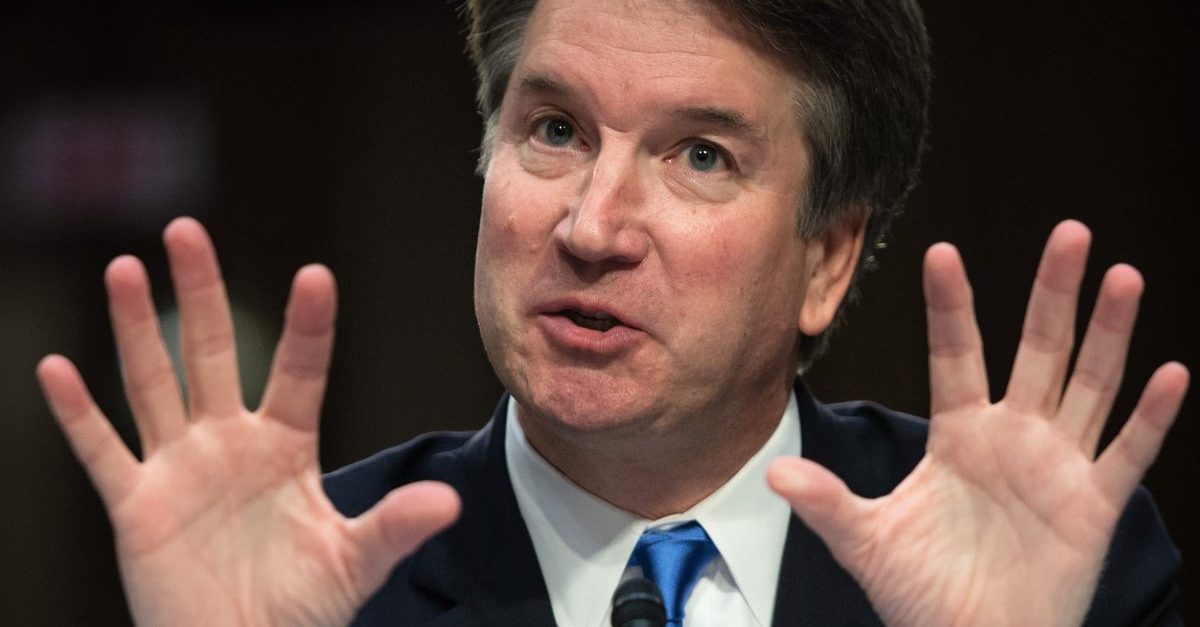
A new claim that Supreme Court Justice Brett Kavanaugh committed a not-previously-disclosed inappropriate if not criminal sexual act while he was a student at Yale has led several leading political figures to call for his impeachment, or at least for an investigation possibly leading to his impeachment.
But legal precedent may stand in the way of any such attempt, even assuming that sufficient evidence could be found at this late date.
The precedent comes from the attempted impeachment of Vice President Schuyler Colfax.
While considering his impeachment, the House Judiciary Committee concluded that impeachment “should only be applied to high crimes and misdemeanors committed while in office and which alone affect the officer in discharge of his duties as such, whatever may have been their effect upon him as a man, for impeachment touches the office only and qualifications for the office, and not the man himself.”
Moreover, according to the authoritative Congressional Research Service (CRS), “it does not appear that any President, Vice President, or other civil officer of the United States has been impeached by the House solely on the basis of conduct occurring before he began his tenure in the office held at the time of the impeachment investigation, although the House has, on occasion, investigated such allegations.”
The CRS also reported that Congress has identified three types of conduct that constitute grounds for impeachment, and they all require that the acts occur when the person is already in office. These categories, which may not be exhaustive, include:
(1) improperly exceeding or abusing the powers of the office;
(2) behavior incompatible with the function and purpose of the office; and
(3) misusing the office for an improper purpose or for personal gain.
In short, for impeachment, what is arguably necessary is some serious wrongdoing that counts, in Alexander Hamilton’s words, as “the abuse or violation of some public trust,” and not even more serious crimes and other wrongdoing which may have occurred prior to the time a person assumed office.
If this precedent is still seen to control and is followed, Kavanaugh could not legally be impeached — and possibly removed from office following an impeachment trial in the Senate — for anything he may have done before taking the bench.
Fortunately for Democrats, there is another much more recent precedent which might help: federal Judge Thomas Porteous was removed from the bench by Congress in 2010 for, among other things, attempting to conceal, during his confirmation process, various acts alleged to have occurred in the past.
So it could be suggested that this more modern precedent might permit Kavanaugh to be impeached, and ultimately removed from office, for wrongdoings committed prior to taking office, especially if they involved and allegedly influenced the confirmation process itself.
This might include allegedly lying under oath during this confirmation hearing about allegations of sexual misconduct already made at that time, lying about his drinking, and so on.
Indeed, it could even be argued that these alleged falsifications — which supported and helped lead to his confirmation — rendered his new appointment invalid from the very beginning, thereby putting into some question any Supreme Court decisions in which his vote was crucial.
However, since this new allegation of sexual misconduct was unknown at the time of his confirmation hearing, and he thereby did not lie under oath about it, it might not help those seeking to rely upon this new ammunition.
While there may not be any established legal process for challenging decisions of the U.S. Supreme Court on the grounds that a justice’s appointment was invalid — as there is, for example, with similar decisions rendered by federal agencies — such an invalidation argument might provide a justification for the high court itself to promptly revisit those decisions should Kavanaugh be removed through impeachment, and then be replaced by a less conservative judge.
John F. Banzhaf III is a Professor of Public Interest Law at George Washington University Law School.
[Image via SAUL LOEB/AFP/Getty Images]
This is an opinion piece. The views expressed in this article are those of just the author.